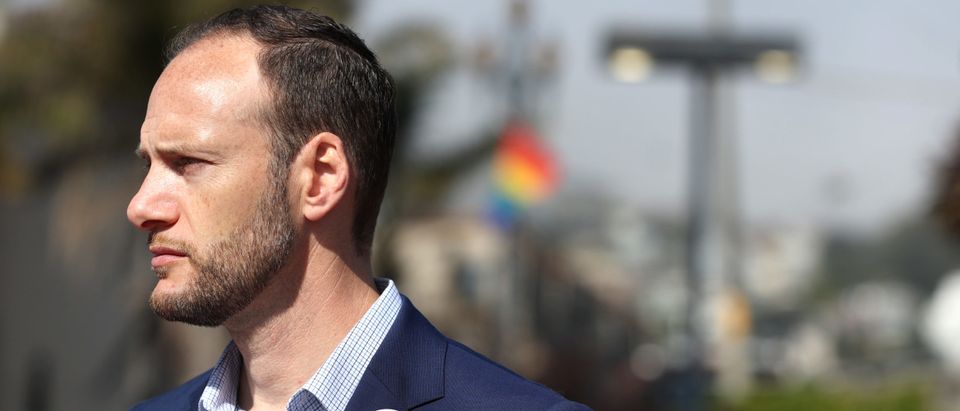It took a few years, but it seems even the bluest city in the bluest state in the country has decided leftism has its limits.
The first crack in the wall on the left has appeared in voters’ exasperation with crime. In San Francisco, they threw out District Attorney Chesa Boudin on Tuesday by a 55-45 margin. Though the overwhelming rejection was a bit of a surprise — the result wasn’t — it’s still too early to know how one community’s response will impact criminal justice policy in a state where there’s a growing anxiety about lawlessness.
The world has seen what San Francisco, often thought of as the most beautiful city in the world, has become in recent years. On top of a homelessness problem that makes parts of it indistinguishable from the Third World, crime has battered San Francisco. Watching shoplifters freely “shop” has lost its shock value after becoming an almost commonplace — and likely underreported — occurrence.
Stores, unable to sustain losses due to the raids, have closed their doors early, and in some cases permanently. Automobiles break-ins are so routine that owners leave notes telling would-be thieves to move on because there is nothing of value in their cars. The “string of attacks against older people of Asian descent” has further reinforced San Francisco’s reputation as “nearly the most crime-ridden city in the U.S.”
“Crime is legal basically and allowed and tolerated due to policies put in place and supported by all our supervisors and mayor and DA,” said the Instagram user who posted last year’s widely watched daylight heist at the Union Square Neiman Marcus.
Voters knew what they were getting in Boudin before he was elected in 2019. The son of Kathy Boudin and David Gilbert, members of the Weather Underground — a 1960s-1970s domestic terrorist group responsible for bombings and murders, ran on an anti-incarceration platform. He promised to end gang enhancements — increased prison time for gang-related crimes — and dump cash bail. Under his turned-away eye, the San Francisco prosecutor’s office would no longer apply the state’s three-strikes law.
Boudin also clearly said he would not prosecute quality-of-life crimes such as “public camping, offering or soliciting sex, public urination, blocking a sidewalk, etc.”
But what voters didn’t know was what was going to happen on the inside.
Pacific Research Institute senior fellow Steve Smith, who has a long career in law enforcement that includes investigating and training, said Boudin couldn’t even “forge a coalition amongst his own staff, the police, and the community.”
“How can you get business done without support from at least two of those three constituencies?” asked Smith. “His only loyalists in the district attorney’s office were former public defenders that he appointed when he took office. His firing of some of the most senior prosecutors in the office looked more like a public defender with an ax to grind rather than a public safety decision.”
Smith pointed out that Boudin “decided to blame billionaire donors for the recall campaign” yet conveniently forgot “other rich donors” — in particular billionaire George Soros — “helped get him in office.”
But, says Smith, “in the end it was a broad democratic coalition that showed him the door.”
Tuesday’s California primaries didn’t turn out to be the political earthquake some were predicting they would be. The only truly remarkable result was the Boudin recall, and it was because of the wide margin — not the outcome itself.
But in turning out one of their own, San Francisco voters sent an indirect message to George Gascón, their former district attorney who is facing his own recall campaign as Los Angeles’ prosecutor: Beware. Even blue voters can tire of crime and lose patience with prosecutors who want to conduct sociological experiments disguised as “reform” that put citizens in peril.
It’s impossible to say, though, how a single recall, and maybe even a second one — Los Angeles Deputy District Attorney Jonathan Hatami has warned his progressive boss “you’re next” — will affect future criminal justice policy across the state. The pendulum might have moved a bit, but there’s no reason yet to believe there’ll be a significant swing away from laws that have made the state a plunderers’ paradise. More evidence will be needed before that verdict comes down.
Kerry Jackson is a fellow with the Center for California Reform at the Pacific Research Institute.


